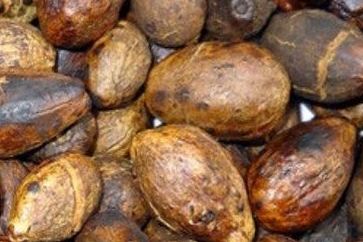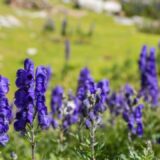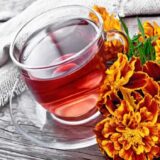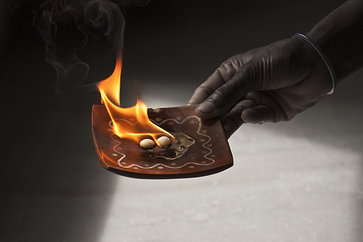Ayurvedic Skin Care Tips for Teenage Girls at School
Ayurvedic beauty tips offer a holistic approach to enhancing one’s natural radiance and well-being. Rooted in ancient Indian wisdom, Ayurveda views beauty as an outer reflection of inner health and balance.

These tips encompass a wide range of practices, from dietary choices and herbal remedies to skincare routines and lifestyle adjustments, all tailored to individual constitutions (doshas).
In the pursuit of beauty through Ayurveda, the emphasis lies not only on aesthetics but also on promoting overall physical, mental, and emotional health. This approach recognizes that true beauty emanates from the harmonious interplay of mind, body, and spirit.
What is Beauty According to Ayurveda?
In Ayurveda, beauty is viewed as a reflection of an individual’s overall health and well-being, encompassing physical, mental, and emotional aspects. Beauty in Ayurveda goes beyond mere external appearances and is deeply connected to one’s inner balance and harmony. Here’s what beauty means in Ayurveda:
1. Balance of Doshas: Ayurveda identifies three doshas – Vata, Pitta, and Kapha – which represent different combinations of the five elements (earth, water, fire, air, and ether) within the body. Beauty is seen as a manifestation of a harmonious balance of these doshas. Imbalances can lead to various skin and hair issues, affecting one’s appearance.
2. Healthy Skin and Hair: Ayurveda places great importance on maintaining the health of the skin and hair. Beautiful skin is considered soft, smooth, and free from blemishes, while beautiful hair is strong, shiny, and thick.
3. Radiant Complexion: Ayurveda values a radiant complexion as a sign of good health. A glowing skin tone is often associated with balanced doshas, proper digestion, and overall vitality.
4. Natural Beauty: Ayurveda emphasizes enhancing one’s natural beauty rather than relying on artificial or cosmetic interventions. It encourages practices and treatments that promote the skin’s innate health and radiance.
5. Holistic Beauty: Beauty, according to Ayurveda, is a holistic concept that takes into account not only physical appearance but also mental and emotional well-being. Inner peace, contentment, and positive emotions are believed to contribute to one’s outer beauty.
6. Aging Gracefully: Ayurveda acknowledges the natural aging process but suggests ways to age gracefully by maintaining overall health. Healthy aging is seen as a part of the beauty journey.
7. Individualized Beauty: Ayurveda recognizes that beauty is unique to each individual and is influenced by one’s dosha constitution. Therefore, beauty practices and treatments are often personalized to suit an individual’s specific needs and imbalances.
8. Natural Remedies: Ayurveda relies on natural remedies such as herbs, oils, and dietary adjustments to enhance beauty. These remedies are chosen based on their compatibility with an individual’s dosha and specific beauty concerns.
9. Mind-Body Connection: Ayurveda underscores the interconnectedness of the mind and body. Emotional well-being, mental clarity, and stress management are considered integral to achieving and maintaining beauty.
Concept of Beauty in Ayurveda
The concept of beauty in Ayurveda is rooted in the idea of holistic well-being and emphasizes natural, safe, and age-appropriate practices. Ayurvedic beauty tips are considered suitable for people of all ages because they are harmless and rely on the use of natural herbs, minimizing the risk of adverse reactions. Here’s a closer look at how Ayurveda views beauty and its remedies:
1. Natural and Harmless Approach: Ayurvedic beauty practices are favored for their natural and safe attributes. They prioritize the use of herbal ingredients and treatments, which are believed to be devoid of harmful side effects, making them suitable for everyone.
2. No Unfriendly Reactions: Ayurvedic beauty treatments are considered gentle and unlikely to trigger adverse reactions. This provides a sense of security when following Ayurvedic beauty advice, as it minimizes concerns about negative responses or allergies.
3. Addressing Eating Disorders: Ayurveda recognizes that faulty eating habits can significantly impact one’s beauty. Irregular or unhealthy dietary patterns are seen as a primary cause of various beauty-related issues, including skin problems, hair loss, and overall vitality.
4. Dietary Adjustments: Ayurvedic beauty remedies often involve dietary adjustments to correct imbalances caused by faulty eating routines. Specific dietary guidelines are provided to support overall health and beauty.
5. Herbal Solutions: Ayurvedic beauty treatments frequently incorporate the use of special herbs. These herbs are chosen for their potential to address specific beauty concerns, such as improving skin complexion, promoting hair health, or enhancing overall radiance.
6. Holistic Approach: Ayurveda takes a holistic approach to beauty by considering the interplay of physical, mental, and emotional factors. It recognizes that beauty is not solely skin-deep and that overall well-being plays a vital role in one’s appearance.
7. Individualized Recommendations: Ayurvedic beauty tips are often tailored to an individual’s unique constitution (dosha) and specific beauty concerns. This personalized approach ensures that remedies are well-suited to the individual’s needs.
Ayurvedic Diet For Beauty Tips
Ayurvedic dietary practices for beauty focus on promoting healthy digestion and overall well-being. Here are some Ayurvedic diet tips for enhancing beauty:
1. Avoid Frequent Eating: Eating at very short intervals can be a poor eating habit and may contribute to skin problems such as acne and blackheads. Ayurveda suggests maintaining longer gaps between meals to allow proper digestion.
2. Space Meals Appropriately: Avoid eating anything within a couple of hours before or after lunch and supper. This practice aligns with Ayurvedic principles, which emphasize giving the body adequate time to digest food.
3. Mind Food Combinations: Ayurveda cautions against consuming incompatible food combinations as they can exacerbate skin issues. For instance, consuming fish and milk together is considered potentially unsafe. Ayurveda advises paying attention to food compatibility.
4. Listen to Your Body: Ayurveda emphasizes eating in harmony with the body’s natural signals and cravings. Consuming food against the body’s natural inclinations can potentially lead to visible skin problems.
5. Avoid Excessive Sweet and Fatty Foods: Especially during the summer months, it’s advisable to limit the consumption of extremely sweet and fatty foods. These types of foods can disrupt the body’s balance, potentially affecting the skin’s health.
6. Moderate Spicy Foods: Hot and spicy food preparations should be consumed in moderation. Excessive spiciness can lead to imbalances in the body, which may manifest in skin issues.
7. Incorporate Fresh Fruits: Fresh fruits are highly recommended in Ayurvedic dietary practices. They are considered nourishing and can provide essential vitamins and antioxidants that contribute to healthy skin.
8. Include Leafy Vegetables: Leafy vegetables are known for their nutritional value and are often included in Ayurvedic diets. They can provide essential nutrients that support skin health and overall beauty.
Indian Ayurvedic Beauty Tips
Indian Ayurvedic beauty tips often utilize natural ingredients to enhance skin health and promote a radiant complexion. Here are some traditional Ayurvedic beauty tips that you can incorporate into your skincare routine:
1. Cabbage Juice and Honey: Mix 30 ml of cabbage juice with one teaspoon of honey. Apply this mixture to your face regularly to help reduce wrinkles.
2. Milk, Lime Juice, and Salt Cleanser: Combine 50 ml of fresh, unboiled milk with two teaspoons of lime juice and a pinch of salt. Use this mixture as a cleansing gel to clean your skin and help disinfect deep pores.
3. Tomato and Lemon Juice: Mix 50 ml of tomato juice with one teaspoon of lemon juice and apply it to your face. This blend can make your skin soft and give it a healthy glow.
4. Lemon, Honey, and Vegetable Oil: Create a paste by mixing lemon juice, honey, and vegetable oil. Apply it to dry skin and wash it off after 10-15 minutes. This mixture serves as an effective moisturizer for dry skin.
5. Wheat Flour and Turmeric Paste: Combine equal parts of wheat flour and turmeric powder with sesame oil to make a paste. Apply this paste to your face to remove unwanted hair.
6. Raw Carrot Paste: Make a paste from raw carrots and apply it to your face. After one hour, wash it off to reveal glowing skin.
7. Orange Juice: Applying orange juice to your face can help soften and smoothen your skin.
8. Rosewater, Lime Juice, and Glycerin Lotion: Mix equal parts of rose water, lime juice, and glycerin. Apply this lotion to your face at bedtime to help remove pimples, blackheads, and other skin blemishes. It also makes the skin soft and can be applied to other body parts like hands and feet.
9. Turmeric, Raw Milk, and Lemon Juice: Create a paste using turmeric, a little raw milk, and lemon juice. Apply it to the skin to alleviate sunburn.
10. Mint Extract: Regularly applying mint extracts to your face can help eliminate blemishes.
11. Buttermilk Cleanser: Buttermilk, being a natural acid, is effective in fading sunburn. Cleanse your face with buttermilk regularly for several days to notice the difference. It’s particularly beneficial for oily to combination skin types as it helps tone the skin.
Beauty in Ayurveda is a harmonious state of being that encompasses physical health, mental well-being, and emotional balance. It is about nurturing and enhancing one’s natural beauty through personalized, holistic, and natural practices, ultimately leading to a radiant and healthy appearance.



























such a great information i like it very much, these beauty tips will help to improve my beauty. Thanks
Ayurvedic treatment is really very good for health. There are lots of herbs available for treating different heath problems like Pimpinella anisum herb can treat cataract eye problem. If you take powder of its seeds in a tablespoon quantity every morning and evening then it gives good eye vision.